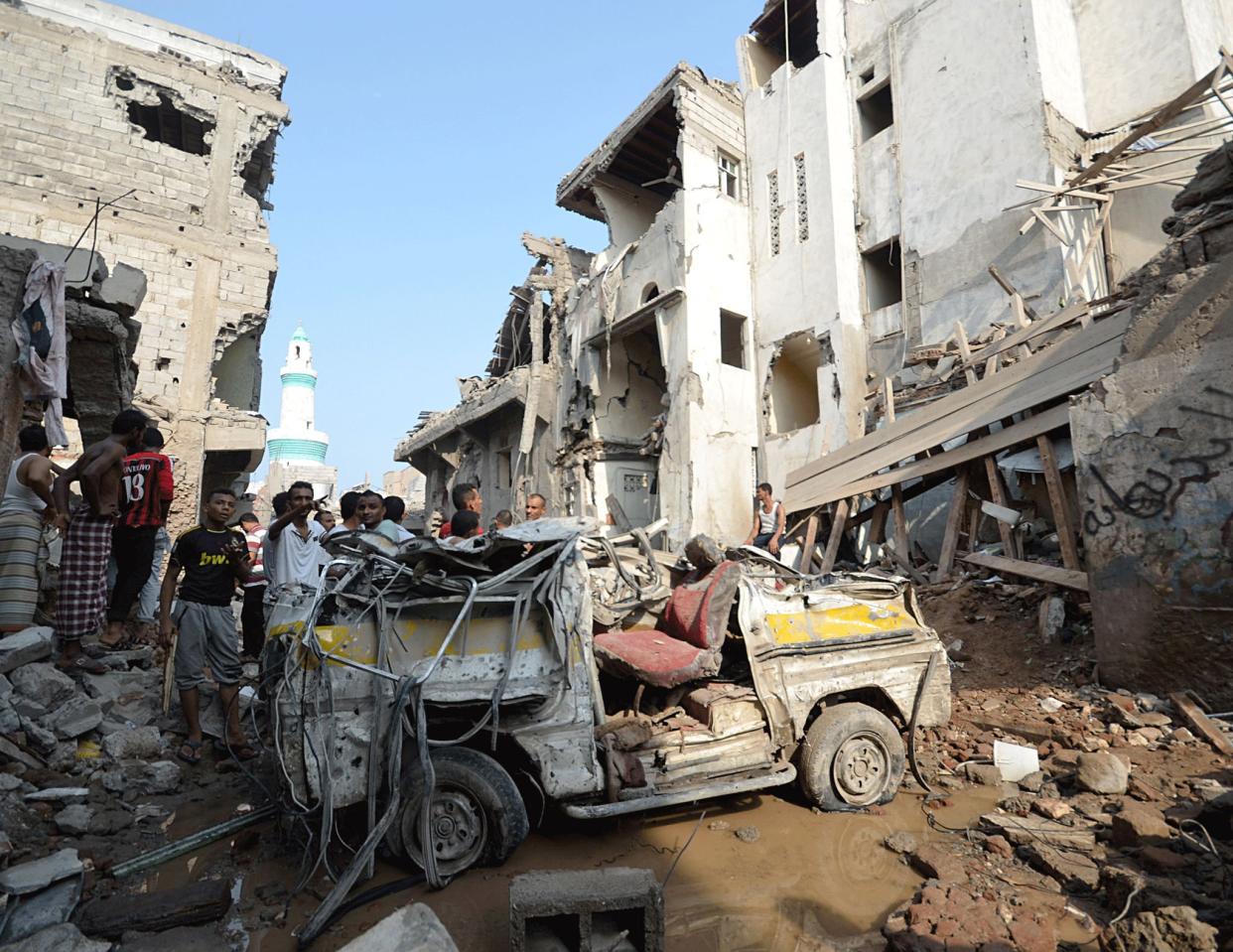For those of us in Yemen, Eid this year will be marred by fear and tragedy

Last night I walked around the streets in the city centre of Hodeidah. The restaurants were open as normal and there was no displacement or evacuation. The city was bustling as people were shopping for their food and gifts for Eid until dawn.
But people are confused. One man said to me: “Is this a game? We are seeing accounts of bombing in the media but this is not the reality we are seeing.”
Unfortunately, we know this is not the case for our fellow citizens of Hodeidah in the south. We can hear the bombings. Yesterday there was an extraordinary amount of air traffic and fighter jets flying around. It’s a bit quieter today but there is a prevailing sense of fear around us.
People have no idea what’s going to happen and many are stockpiling vital supplies. People are asking me what they should do. Those who don’t have any means to go anywhere fear they will die.
Eid will be very different this year. People normally go to the parks or go swimming and sailing on the coast, having fun with their friends and family – but now no one wants to travel too far from their homes, and they are avoiding any areas where there are military checkpoints or places that are expected to be targeted by violence.
If all is still calm, we will take the day off to relax but if there are any security issues, we will be working to make sure that we can provide immediate support to anyone affected.
Living through three years of conflict is exhausting, but as an aid worker here in Yemen, you have to have a big heart and a great sense of passion. If we give up, people will suffer even more. We have to be strong. We keep going, amid all the anger and frustration.
At the moment our work is continuing. A key priority for us is to help the people who have been displaced by the intense armed violence across Yemen. Last night we delivered emergency supplies to 190 households. We are also pre-positioning emergency supplies in various warehouses.
We have made contingency plans for different outcomes but it’s not clear from one minute or one hour to the next what is going to happen. All of our staff here are from Hodeidah so we have made plans to ensure their safety in the event of an all-out attack on the city.
As for me, this Eid will not be the same without my children, who are in Sana’a as it’s not safe for them to be here.
People are literally dying because there is not enough food. It is heartbreaking to hear about mothers who have watched their kids die of malnutrition in utter despair as they have been powerless to do anything about it.
So many people desperately need hospital treatment but in many places there are no medical staff or equipment and drugs to treat people with.
This is what happened to my wife. She was diagnosed with an autoimmune liver infection, but we couldn’t get adequate medical treatment because of the trade embargo on the country. She suffered for two years and then passed away. During those two years we lived in continual fear, fleeing for our lives with our children to escape bombing attacks. The stress and fear of the violence caused her health to deteriorate and ultimately led to her death.
So many people are needlessly dying because of this conflict causing so much grief and heartbreak. Last year 2,000 people died of cholera and this is still happening today.
We at Islamic Relief are doing what we can to provide food, water and health care. But what we really need is peace.
The international community must bring all parties in the conflict to the negotiation table to avoid more needless deaths and heartbreak.
We also need more humanitarian support. The needs are huge but the gap in funding is immense. For example, the UN humanitarian appeal is only 50 per cent funded, yet we are living amid the worst humanitarian crisis in the world.
It’s hard to think about celebrating Eid this year amid so much suffering.
Salem Jaffer Baobaid is the deputy country director in Yemen for Islamic Relief

